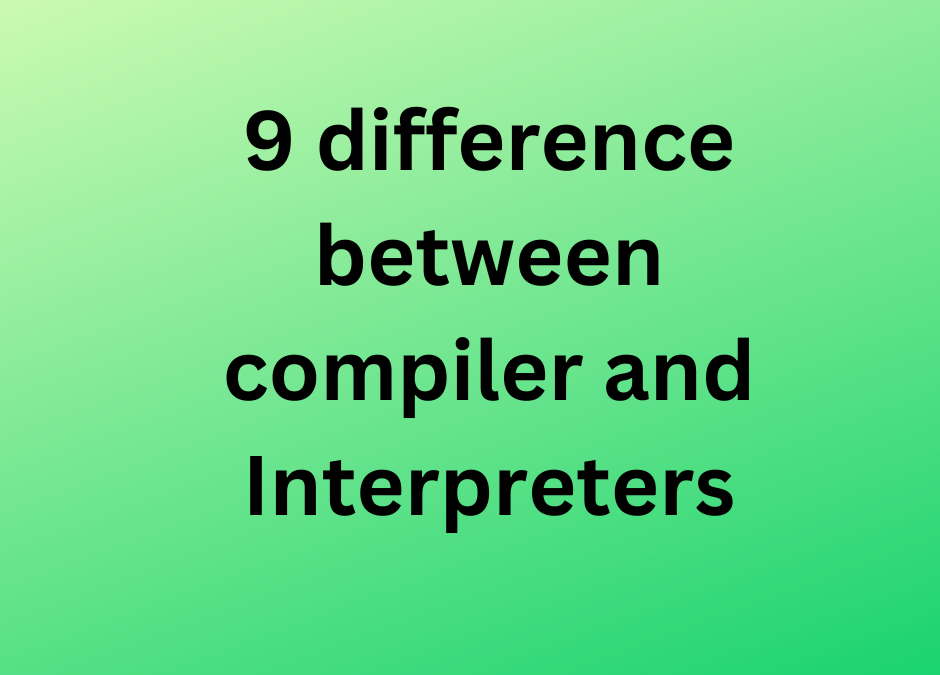- Execution Process: The main difference between a compiler and an interpreter lies in their execution process. A compiler translates the entire source code into machine code or bytecode before execution. On the other hand, an interpreter translates and executes the source code line by line.
- Output: A compiler produces a standalone executable file or a library that can be executed independently. An interpreter does not generate a separate executable; it directly executes the source code and produces the output.
- Performance: Due to the ahead-of-time compilation process, compilers generally provide faster execution speed compared to interpreters. Interpreters, however, tend to have slower execution as they translate and execute the code simultaneously.
- Error Handling: Compilers usually catch errors during the compilation phase and provide a comprehensive list of errors, making it easier to debug the code. Interpreters detect errors line by line, stopping execution when an error is encountered and displaying the corresponding error message.
- Portability: Compiled programs are generally more portable since the generated machine code or bytecode can be executed on any system or architecture that supports it. Interpreted programs rely on the presence of an interpreter for the specific programming language, making them less portable.java training in coimbatore will help students to understand the object-oriented programming in a better way. They will get an understanding of how to write a program using Java. The course also includes a session on how to debug programs written in Java.
- Development Cycle: Compilers often require a longer development cycle since the entire code needs to be compiled before it can be executed and tested. Interpreters have a shorter development cycle as changes can be tested immediately after modifying the source code.
- Memory Usage: Compiled programs tend to have lower memory usage during runtime since the entire code is translated into machine code. Interpreters require additional memory to store the interpreter itself and the intermediate representation of the source code.
- Debugging: Compilers provide limited runtime debugging capabilities, as most errors are caught during the compilation phase. Interpreters often offer more interactive debugging features, allowing developers to debug code line by line.
- Flexibility: Interpreted languages are often more flexible as they allow dynamic features like dynamic typing and runtime code evaluation. Compiled languages are usually statically typed and require the code to be fixed and compiled before execution.
It’s important to note that some programming languages, such as Java, employ a combination of compilation and interpretation. They compile the source code into bytecode and then interpret the bytecode using a virtual machine.

